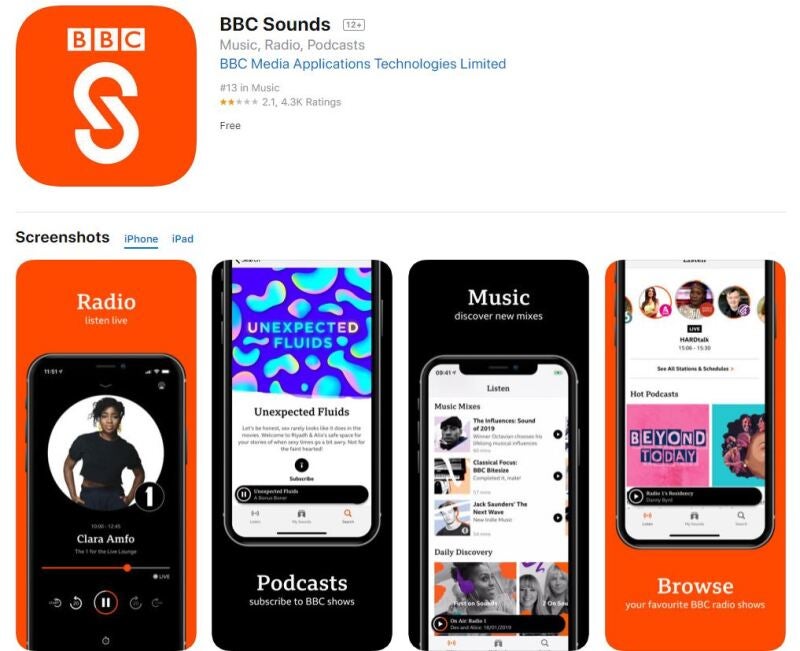
The BBC is developing a “public service algorithm” for its BBC Sounds app to stop listeners getting trapped in their own filter bubbles and echo chambers, its director of radio revealed today.
BBC Sounds launched six months ago to reach more young users, and growing the audio app, which hosts all live and on-demand BBC radio and podcasts, is one of the broadcaster’s four core priorities for 2019/20.
Sounds has replaced the BBC iPlayer Radio website and app, the latter of which is being phased out.
James Purnell (pictured), the BBC’s director of radio and education, said today that although algorithms “can be positive”, the way they tend to recommend “more of the same” type of content that a user has already chosen to listen to can “limit the breadth” of their experience.
He revealed the BBC is therefore developing its own algorithm for Sounds to make sure the content it recommends will inform and educate listeners, not just entertain them with more of the content they already want.
Speaking at the Radio Festival at the British Library in London, Purnell said: “They learn from what you don’t like and stop recommending you the wrong things. And they can surface things similar to what you are listening to that you would not otherwise have found.
“But there is reason to be nervous about embracing algorithms in the way that streaming platforms do.
“The BBC rests on three foundations: to entertain, yes, but also to inform and educate. Most algorithms do the former, but not the latter. That’s why we are developing our own: a public service algorithm.
“This is not an algorithm that just gives you more of the same, but an algorithm built to surprise you, to direct your attention to new information, to different points of view, to pop your bubble.
“Algorithms are made in the image of their designers and can be biased against people who are different. But when they are designed with a public service purpose, they do not have to be biased and they do not have to create echo chambers – they can open them up.”

BBC Sounds currently features a “recommended for you” section on its main page, along with other indexes named “hot podcasts” and “daily discovery”.
Purnell said it will become more personalised by the autumn as improvements on the app continue.
It came in for some criticism in the press and from listeners soon after its November launch for poor functionality, including a poor search tool and
One user told BBC Radio 4’s Feedback in November: “I find it really frustrating. Features that I’ve been used to in the radio iPlayer app aren’t easily available. There’s an awful lot of scrolling to get past things the BBC wants me to listen to.”
Another said it was “very disappointing” that “much functionality has been lost”, while a third said it had a “terrible layout”.
Purnell indirectly addressed critics today, saying that BBC Sounds was not yet the “complete, finished product” because “the best way to launch a product is to test and learn from what does and doesn’t work – then respond to feedback and change”.
He claimed there has been a positive response overall, with 1.3m weekly users and 84 per cent of app users saying they would recommend it to a friend.
“But as with any product, you launch, find ways to improve, and learn,” Purnell added.
“The app, for instance, is built for personalisation, but is not yet fully personalised. This means that right now a user sees programmes that have not been curated for them.
“That is changing, as of this month in fact. By the autumn, Sounds will be highly personalised.”
Purnell also revealed that the BBC is in talks to open the BBC Sounds app to commercial radio providers, and that it may also host podcasts from outside the UK.
Apple and Spotify together have more than 60 per cent of the podcast and music streaming market in the UK, according to Purnell. Other estimates put Apple on more than 60 per cent alone.
Picture: BBC
Email pged@pressgazette.co.uk to point out mistakes, provide story tips or send in a letter for publication on our "Letters Page" blog
